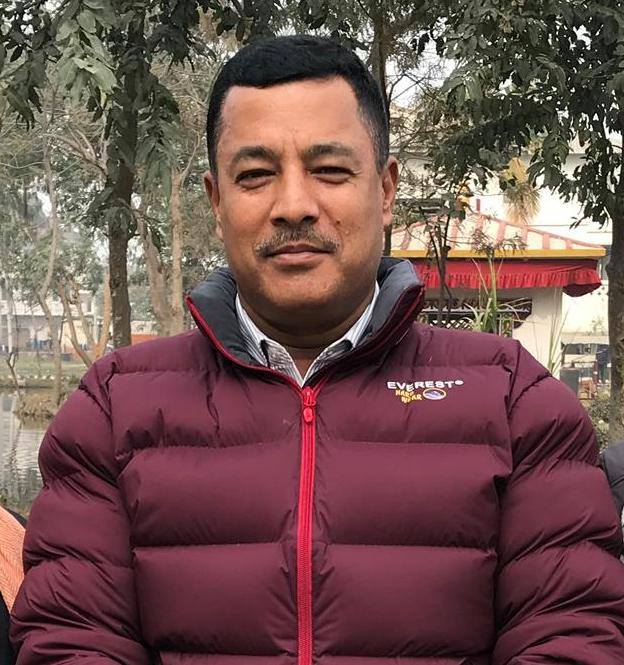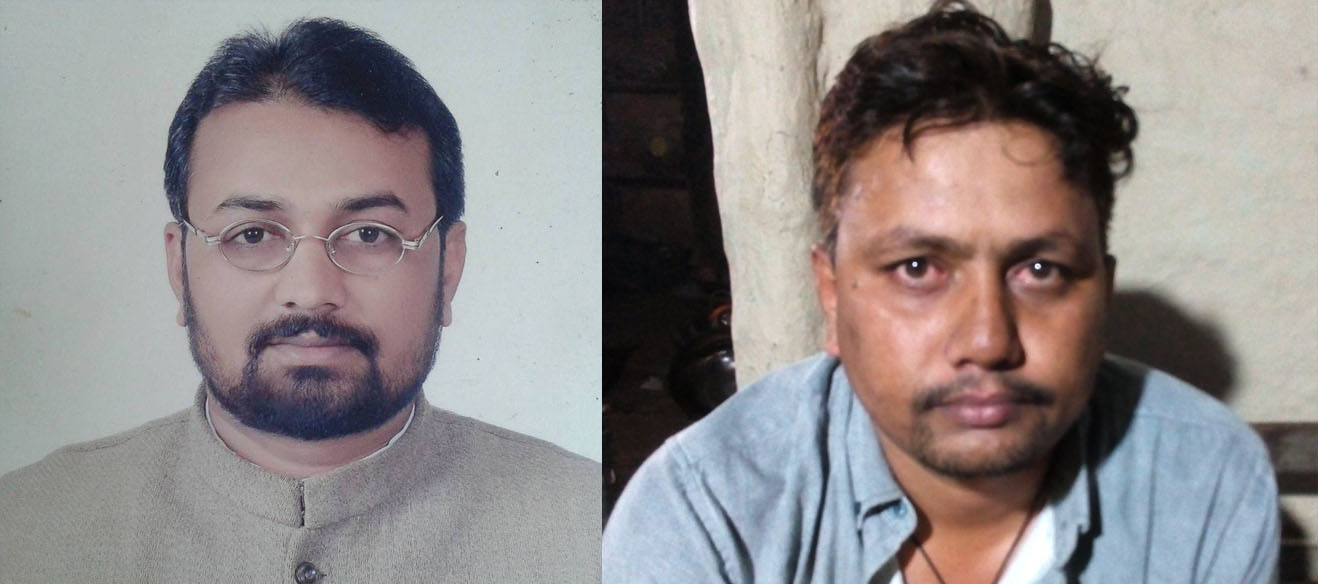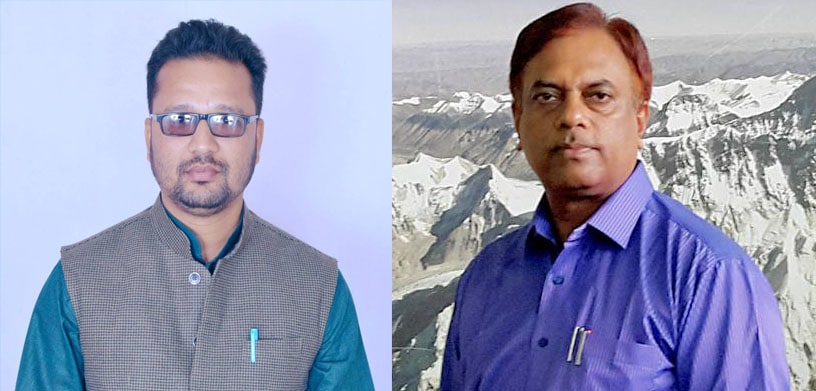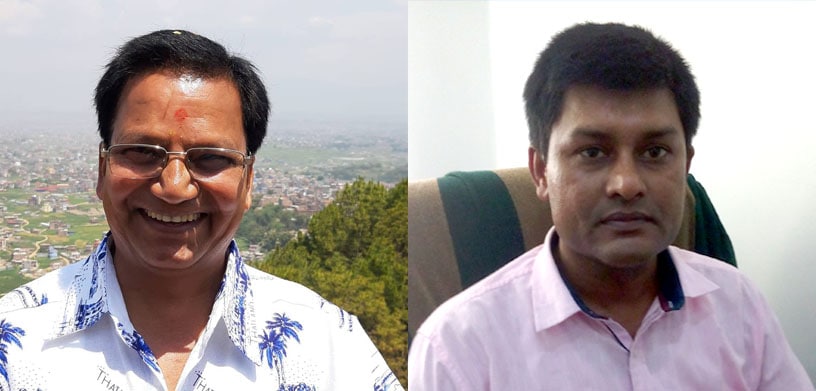The trend of appointments of advisors and experts from political cadres has been prevalent in provinces impacting negatively in qualitative policy formulation. An account of Province 2.
Ajaya Anuragi: Centre for Investigative Journalism-Nepal

Bijaya Lal Kayastha
In what can be described as a blatant move, a meeting of the Province 2 cabinet chaired by Chief Minister Lal Babu Raut appointed Bijaya Lal Kayastha, retired Additional Inspector General of Police (AIGP), as its security expert on October 16, 2018.
Besides setting up a well-equipped office for Kayastha at the Ministry of Internal Affairs and Law, the provincial government has provided him a residence at the Madesh Bhawan. Despite the facilities such as monthly salary and perks, Kayastha is never spotted at his office or at his residence.
Interestingly, despite his appointment as the security advisor, he has no tasks to perform, forget about his responsibility or rights, yet he receives his monthly salary in Kathmandu itself. Hence, Kayastha prefers to spend most of the time in Kathmandu.
There is something more to add. Chief Minister Raut, meanwhile, claims that Kayastha’s role is yet to come. “During his appointment as the security advisor, the police act was being worked out. His role will be felt during the time of appointing provincial police,” Raut said.
The Lok Sewa Council Bill (Public Service Council Bill) has been tabled at the Provincial Assembly. The government is set to recruit province police once the provincial assembly endorses the bill.
“You will witness his (Kayastha) work once the regulations, directives, and working procedures, which are yet to be formulated, comes into force,” said CM Raut.
Even though the provincial government has not provided him a vehicle, Kayastha receives a total of 80-liter fuel per month, according to Information Officer at the provincial cabinet, Padam Prasad Pokhrel.
Kayastha receives high-level benefits and facilities at par with the government’s first-class officer and receives a monthly salary of Rs 51,420. However, as a pensioner, he receives the salary after deducting Rs 34,109, which he gets as a pension.
Before his retirement, he was serving as the chief of Province 2 police office in Janakpur. Kayastha is currently on a month’s leave and is in the United States. Says Satya Narayan Mandal, parliamentary party leader of Nepal Communist Party (NCP), the opposition party in the Province 2 parliament, “I see no relevance to appoint a security advisor at a time when the province does not have its own security organs. The appointment has been made on the basis of nepotism.”
Haphazard appointment of advisors
The story does not end here. Province 2 Chief Minister Raut has appointed Jitendra Kumar Yadav, Assistant Professor of Purbanchal University, as his chief personal secretary. A permanent employee of Biratnagar-based School of Engineering and Technology since 2007, Yadav was appointed as an advisor around eight months ago. “I am here based on the provincial government’s decision. I get my salary and perks from the Province 2 government,” said Yadav, who has been given the perks and facilities of a first-class officer. He receives Rs. 40,150 as monthly salary.

Sanjay Kumar Singh and Prabhakar Kumar Singh
A resident of Dhabauli, Shahid Nagar municipality ward no 7 of Dhanusha district, he was the chief secretary in the personal secretariat of the Upendra Yadav-led Samajbadi Party Nepal prior to his current position. Yadav’s appointment as CM Raut’s office was made on the basis of his previous experience as Yadav’s secretary. Says Pokhrel, “He is an Assistant Professor. He has joined here as the chief personal secretary. Currently, government employees are also appointed as personal secretaries.”
Also the central vice-president of the Federation of Nepal Intellectual Professionals, Yadav has his elder brother Sailendra Prasad Yadav representing the Sanghiya Samajbadi Forum Nepal in the Province 2 parliament.
Meanwhile, Speaker of Province 2, Saroj Kumar Yadav has appointed Sanjay Kumar Singh, Dhanusha district chairman of the Rastriya Janata Party Nepal (RJPN), as his political advisor.
Likewise, Prabhakar Kumar Singh, son of RJP Nepal’s central treasurer, has been appointed as Speaker Yadav’s press advisor. A question arises: Why does a province Speaker need a political advisor? No public debates have been conducted so far on this issue. However, both the Speaker’s advisors have been drawing a monthly salary of Rs 30,500 each. “Besides giving him advice, I arrange Speaker’s political meetings,” said Singh. Unfortunately, he lacks parliamentary experience.
What does Speaker’s press advisor do? His job, according to him, is to brief the Speaker about the newspaper reports. “I spent my leisure in the library and during the parliamentary sessions, I make phone calls to around 25 to 30 journalists to inform about the date and time of the session.”
The Province Assembly Regulation 2075 has the provision of appointing experts in the Province Assembly, Province Assembly committees and in the secretariat only if need be. However, the regulation does not talk about appointing advisors.
Speaker Yadav appointed Raj Kishor Sah, a retired government engineer as his technical expert on November 17, 2018. Sah, who draws a monthly salary of Rs 34,220 at par with an under-secretary, has been appointed as an advisor to assist the provincial assembly’s Parliamentary Special Monitoring Committee technically. Likewise, Ranjit Yadav, Secretary at the Province Assembly, says that they ask Sah to come to the office only if there is any related work to be done.
Lack of policy, council
The Province 2 government has appointed leaders of various political parties in the Province Policy Council. A meeting of the provincial cabinet held on April 19, 2018, appointed Dr. Hari Bansha Jha and Mohan Lal Chaudhary as Vice Chairman and Member of the Council respectively on the recommendation of then Sanghiya Samajbadi Forum Nepal.

Dr. Surendra Kumar Jha and Raj Kishor Sah
Jha was previously a central member of RJP Nepal. Prior to this, he was the central member of the Sarat Singh Bhandari-led Rastriya Madesh Samajbadi Party Nepal. Bhandari had recommended Jha to the Constituent Assembly under the Proportional Representation (PR) quota. Jha, however, maintained relations with Upendra Yadav because of which he could grab the prestigious post.
Chaudhary of Parsa district is also a central member of the Samajbadi Party Nepal. Earlier, he was also a central member of Forum. Prior to this, Chaudhary was the central member of Mahanta Thakur-led Terai Madesh Loktantrik Party. He joined Forum by quitting Thakur’s party.
A meeting of the Province 2 cabinet had on October 11, 2018, appointed two persons to the post of policy council on the recommendation of RJP Nepal. The cabinet appointed RJP central co-general secretary Dr. Surendra Kumar Jha of Siraha and RJP Nepal central general secretary and leader of Tharuhat movement Raj Kumar Lekhi of Saptari to the post of policy council.
Likewise, a meeting of the provincial cabinet on March 9, 2019, appointed Dr. Baidhya Nath Mahato of the Samajbadi Party as the member of policy council. Dr. Mahato of Siraha is a retired joint secretary. While the vice-chairperson of the policy council gets a monthly salary of Rs 56,490, members draw Rs. 53,000 per month.
The Policy Council Formation and Working Procedure Related Act has provisioned the qualification of the vice chairperson and member of the council. Both the vice chairperson and the members have to have a master’s degree along with seven years of experience in the field of planning and investigation. However, for people from the Muslim, Dalit or Tharu communities, they have to be a Bachelor’s degree holder with seven years of experience in the field of planning and investigation.
They need to have an expertise in one of the sectors such as industry, agriculture, tourism, energy, road, education, irrigation, forest and environment, social development, administration, finance or health. The vice chairperson or the members should have been appointed in the policy council on the basis of the provision. The appointments have been made on the basis of power-sharing and political affiliation. The trend is widespread in other provinces as well.

Dr. Baidhya Nath Mahato and Jitendra Kumar Yadav
Actually, the policy council chaired by the Chief Minister has to have a maximum of six persons including one vice-chairperson, and one woman. However, the appointments have flouted the provision.
Dr. Hari Bansha Jha, Vice Chairperson of Policy Council, however, defends the appointment saying that the members, though politically affiliated, are experts in their respective sectors. According to him, while he himself holds a doctorate degree, member Chaudhary holds a Master’s degree in economics, and Surendra Jha too is a doctorate. Another member Mahato also holds a Ph.D. degree while he hesitated to reveal Lekhi’s educational background saying that he had no idea.
The policy council should have independent experts. However, the members who have been appointed on the basis of political affiliation have not been able to perform to formulate the policies. Says NCP parliamentary party leader Mandal, “The previous year too passed without any concrete policies. The council has not endeavored to finalize the programs and policies that have to be presented on June 3 by the Province Government so far.”
Interestingly, some members of the Policy Council organized a press conference on January 27, 2019, complaining that they did not have anything to do on the capacity of the council members. Members Dr. Surendra Kumar Jha and Raj Kumar Lekhi had in the press conference alleged the provincial government of not in a mood to implement the policies and programs as suggested by them. They also alleged the government in engaging in minor issues.
However, Dr. Jha argues that the council has been performing its tasks, especially tasks related to the ministries. “There are a lot of things to do ranging from planning and formulating of the plans to the evaluation of survey, among others. We have been working as a think tank of the province.”



